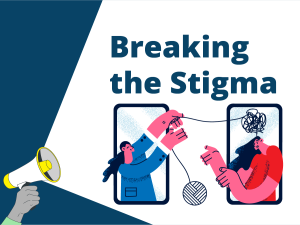In our day to day lives, it’s common for individuals to form close relationships with others. While healthy relationships can bring joy and fulfillment, some people may find themselves in codependent relationships, which can have detrimental effects on their well-being.
What is Codependency?
Codependency is a behavioral and emotional condition that affects an individual’s ability to have a healthy, mutually satisfying relationship. It often involves one person being excessively reliant on the other for approval, identity, and a sense of self-worth. This can lead to an imbalance of power and a lack of boundaries within the relationship.
Signs of Codependency
Recognizing the signs of codependency is the first step toward addressing it. Some common signs include:
- Difficulty setting boundaries: Codependent individuals often have trouble saying “no” and may feel responsible for the actions and feelings of others.
- Low self-esteem: People struggling with codependency may seek validation and approval from others to feel worthy.
- People-pleasing behavior: They may prioritize others’ needs over their own, often at the expense of their well-being.
- Fear of abandonment: Codependent individuals may go to great lengths to avoid being alone, even if it means tolerating unhealthy behavior from their partner.
Effects of Codependency
Codependency can have a profound impact on an individual’s mental and emotional health. It can lead to anxiety, depression, and a diminished sense of self. Additionally, codependent relationships often involve enabling destructive behaviors, such as substance abuse or emotional manipulation, which can perpetuate the cycle of codependency.
Overcoming Codependency
Overcoming codependency is a journey that requires self-awareness, courage, and a willingness to change. Here are some strategies to break free from codependent patterns:
- Self-reflection: Take time to reflect on your own needs, desires, and boundaries. Journaling or seeking therapy can help you gain clarity about your emotions and motivations.
- Establish boundaries: Learn to set healthy boundaries and communicate your needs assertively. Practice saying “no” when necessary and prioritize self-care.
- Cultivate self-love: Focus on building a strong sense of self-worth and self-compassion. Engage in activities that bring you joy and fulfillment, independent of others’ approval.
- Seek support: Surround yourself with supportive and understanding individuals who encourage your personal growth. Consider joining a support group or seeking professional therapy to work through codependent patterns.
Codependency can have far-reaching effects on an individual’s well-being and relationships.. Remember, seeking help and support is a sign of strength, and it’s never too late to embark on a journey toward healing and self-discovery.
If you think you may be codependent or showing signs of codependency, it is important to seek professional help. With treatment, you can learn to overcome codependency and develop healthy relationships.
Reach out to us for help. Call/Whatsapp +254 745 562 108 or visit www.hisia.co.ke









